- Home
- slideshows
- miscellaneous
- I traveled the world for a year and here are the 21 best travel tips I can give you
I traveled the world for a year and here are the 21 best travel tips I can give you
1. When traveling with a friend or partner, pay attention to each other's basic needs: sleep, hunger, stress, and using the bathroom.

2. Pack for trips with Marie Kondo's advice in mind: Bring only that which "sparks joy," organize by category, and fold clothes so that they stand upright.

Packing for trips can be a daunting task. It used to be for me, particularly when I started my trip around the world. I had resolved to pack light — with only a carry-on suitcase and a backpack — but I had plans to travel through a wide variety of climates and scenarios.
The best way I found to make sure I had everything I needed while not overloading my suitcase was to follow the KonMari Method. I gathered together everything I was thinking of packing, organized it by category, and went item by item asking myself "Does it spark joy?" It may sound a little goofy, but I was really asking myself a second question: Does it serve a purpose or function that I need?
This is a vital question, particularly when traveling. Malaria pills may not exactly "spark joy," but they keep me healthy when traveling to sub-Saharan Africa.
That second question is useful when it comes to clothes. If a pair of pants that I am bringing "sparks joy" but doesn't serve any particular purpose, it's a reminder to think twice about packing it.
3. Avoid tourist attractions that have gone viral or are "Instagram-famous."
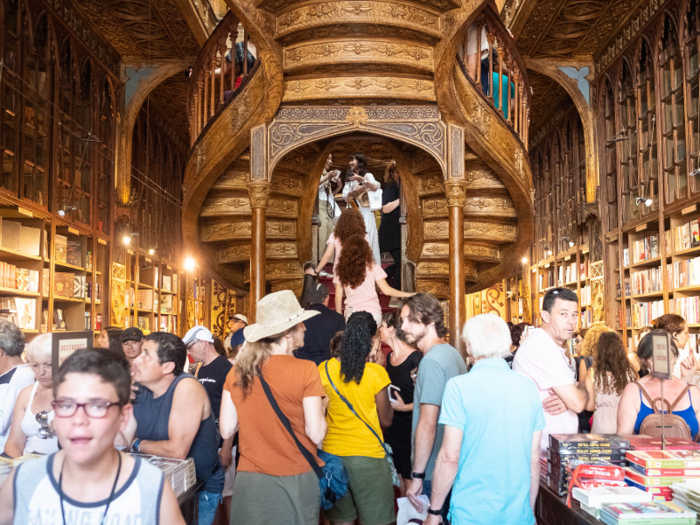
Before you trek out to the Bali Swing, the Majorelle Gardens, China's mountain "Plank Walk" or any other locale you see all over Facebook, Instagram, and YouTube, consider this: Things that look incredible on social media are often not as fun in real life.
I encountered this reality repeatedly over the course of my year of traveling. Often times, the issue was that something that had previously been a fun diversion had become so popular that it took hours to see or had become so overrun that the charm had been ruined.
A perfect example is the Livraria Lello bookstore in Porto, Portugal, one of the world's oldest bookstores and frequently ranked as one of the most beautiful bookstores in the world. As the tiny bookstore has become overrun with selfie-taking tourists and Harry Potter fanatics (it is said that the store's aesthetic inspired J.K. Rowling), it has become a chore to visit.
When I was there, it was so packed you couldn't look at a book without getting bumped, everyone was taking selfies, getting photos of a partner on the bookstore's majestic spiral staircase, or pushing to a room in the back decked out in Harry Potter books and memorabilia.
I have yet to go to an internet-famous tourist site that was worth the hassle. Beware.
4. Carry petroleum jelly on planes to line your nostrils. It relieves headaches and dry nasal passages due to dry plane air on long flights.
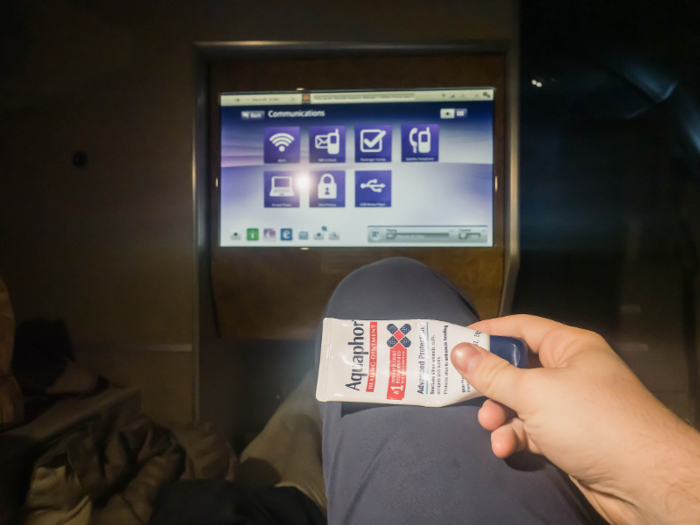
Planes are notoriously dry places with humidity lower than the Sahara Desert. I am very sensitive to dry plane air, which often causes me to have dry nasal passages and can even trigger migraines.
To mitigate the dry air, I line my nostrils with petroleum jelly. Since I started using it, I've noticed a drop-off in dryness and migraines and even in how often I get sick on planes.
But beware of thinking petroleum jelly is a cure-all for getting sick on planes: Most germs are found on surfaces, and using petroleum jelly in your nose too often can have negative effects.
5. If you want to know how clean a hotel room is, check the electric kettle.
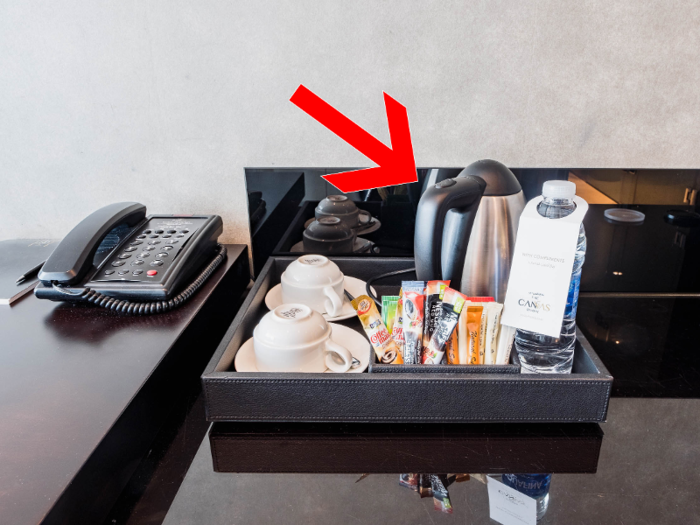
I am constantly staying in hotels that run the range from ultra-budget to mid-tier to luxury. Depending on the country and the hotel company, those categories could mean very different things in terms of amenities, quality, and cleanliness.
Every time I enter a hotel room or an Airbnb, I check the electric kettle or coffee maker — a standard item in nearly every hotel room — to see how clean it is. Poorly maintained or sloppily cleaned hotels will often have dirty, rusted, or outright moldy electric kettles.
6. Reduce stress about losing important cables, chargers, or electronics devices by using an electronics "Dopp kit."
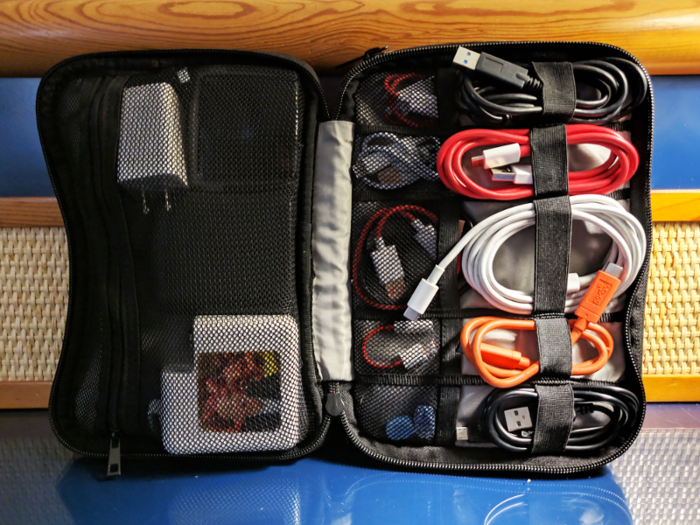
During my first six months on the road, I kept encountering the same problem when leaving a hotel room. Did I remember my extra-long USB-C cable? What about my headphones?
It's an awful feeling when you realize that you've forgotten something but just can't remember what it is.
After returning home to reset, I realized there was one item I needed to pack that would make my next trip less stressful and more organized: an electronics travel organizer, often known as a Dopp kit. The kit works like your regular toiletries bag, but for your devices. I packed it with all my travel adapters, cables, chargers, devices, and accessories.
Whenever I need to start work, I just whip it out and pull out the cables I need. When I enter a hotel room, I know exactly where to go to get my devices charged.
When I leave a place — a hotel room, the airplane cabin, etc. — I can flip the kit open and quickly take inventory. The kit is usually so loaded with doodads that if there's an open space, it means something is missing.
7. If you want to avoid jet lag, slowly adjust your sleep schedule in the days before your flight to correspond with your destination.
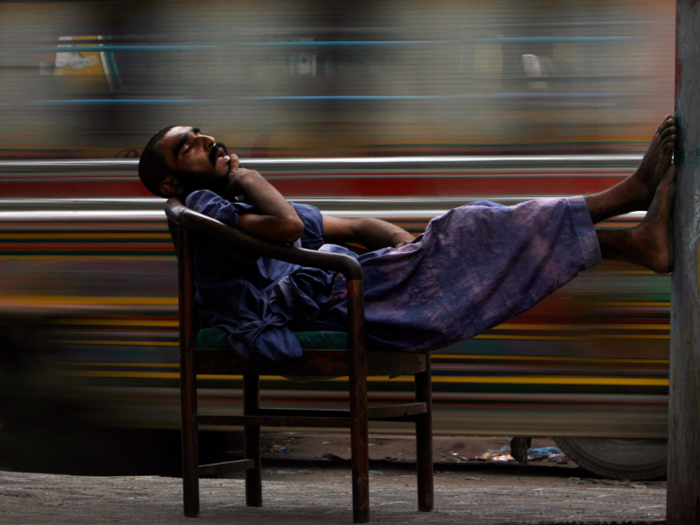
I am constantly taking long-haul international flights, switching time zones, and then working the next day. However, I rarely suffer from the worst effects of jet lag thanks to careful preparation and some science-backed strategies.
In the days prior to the flight, I slowly adjust my sleep schedule to match that of the time zone I am going to, forcing my body to go to sleep earlier or later, depending on the destination time zone, a strategy backed by researchers on the subject.
On the flight, I drink tons of water and operate according to my new time zone. When I land, I force my body to stay awake until a reasonable bedtime.
8. Find great food in any country by researching which recommendation app or crowdsourced review site is popular with locals.
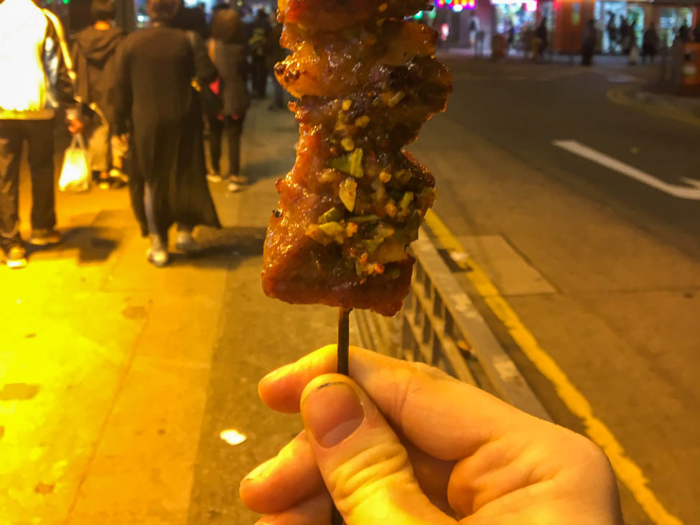
As someone who travels full-time, I rarely cook and I am constantly looking for good, healthy, and cheap food near me. But that's difficult when you are in new places you haven't explored yet.
My best tip for finding good, healthy, cheap food in a new place is to research the restaurant recommendation app or crowdsourced review site most used by residents of the place you are visiting.
Usually, there is one app that has the most active local community doing the usual: leaving tips, posting food porn, and dropping reviews for their favorite spot. I have found that it's rarely, if ever, Yelp or Foursquare.
In China, the app to use is Dianping or Meituan. In Hong Kong, everyone uses OpenRice. Singaporeans use OpenRice and HungryGoWhere, among others (Singapore is a city of foodies, so there are a few). In Korea, MangoPlate is the way to go. In Dubai, everyone uses Zomato.
If you know which one people use in a place, you can tap into locals' knowledge instead of relying on the concierge at your hotel.
9. If you don't want to pay for Global Entry, the $100 US program for approving "trusted travelers" for faster customs entry, use Mobile Passport.
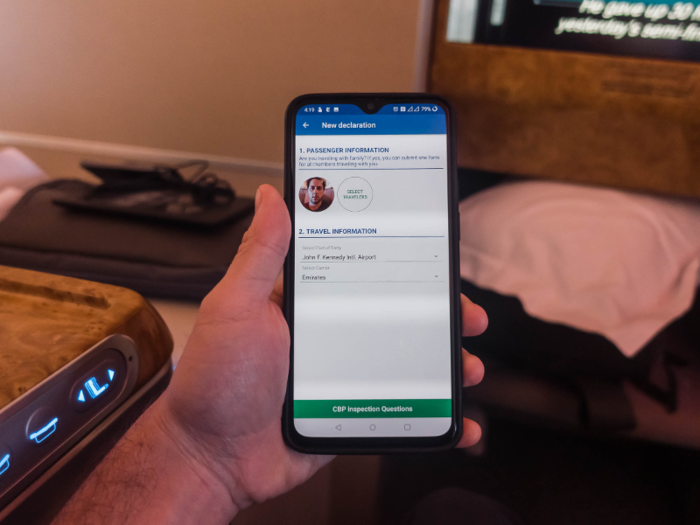
A lot of travel bloggers recommend Global Entry, a US government program for approving "trusted travelers" to gain quicker access through customs after international travel. It requires a $100 application fee and a screening process.
Instead, I use Mobile Passport, a free app officially authorized by US Customs and Border Protection that lets you complete customs forms on your phone.
Like Global Entry, Mobile Passport users have their own separate line at major US airports, getting you out of long customs lines but without the hassle of the screening process or the $100 application fee.
10. When booking hotels, guesthouses, or apartments check prices across Airbnb, Booking, and Expedia. They usually have the same listings at different prices, due to different pricing algorithms.
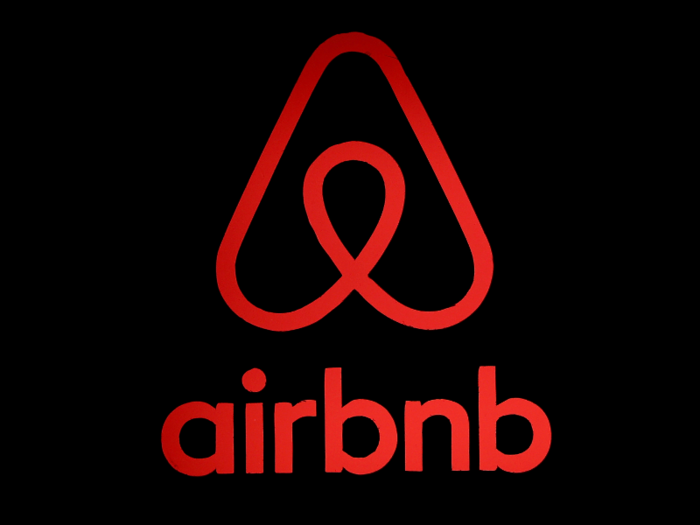
Home-rental service Airbnb is now directly competing with travel booking sites like Booking.com, Expedia, and others, as all of the sites have both traditional hotel listings and non-traditional apartment and home listings on their platforms.
As the companies' strategies for growth converge, I've observed that more and more rental listings can be found on multiple sites, often with wildly varied pricing due to different fee structures and pricing algorithms.
Read more: Airbnb is in a war with Booking.com, and taking advantage of that fact can save you a ton of money
Save yourself a ton of money on your next vacation by cross-referencing listings that you want to book across multiple sites. I often found discrepancies of $100 or more per night by checking listings between Airbnb, Booking.com, Expedia, and others.
11. Before you book a flight with a budget airline, make sure you know any and all extra fees you may have to pay.
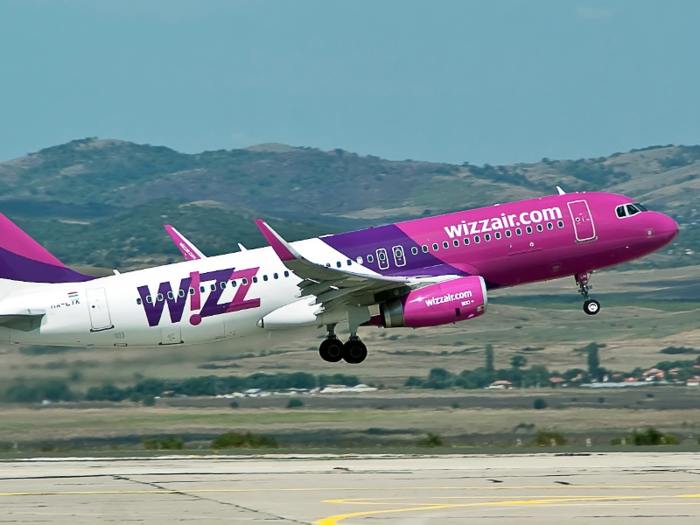
Last August, I booked a cheap flight from Sofia, Bulgaria to Lisbon, Portugal for what I thought was the bargain price of $89 on WizzAir, the budget Hungarian airline.
But, after booking, I found that I was charged fee after fee that ended up costing more than my entire flight ticket, including fees for baggage, administration, airport check-in, and an in-flight meal.
All in all, I ended up spending $126.50 on fees for an $89 flight. My cheap airfare didn't end up being so cheap after all.
12. Get cheap internet by unlocking your phone and using foreign SIM cards.
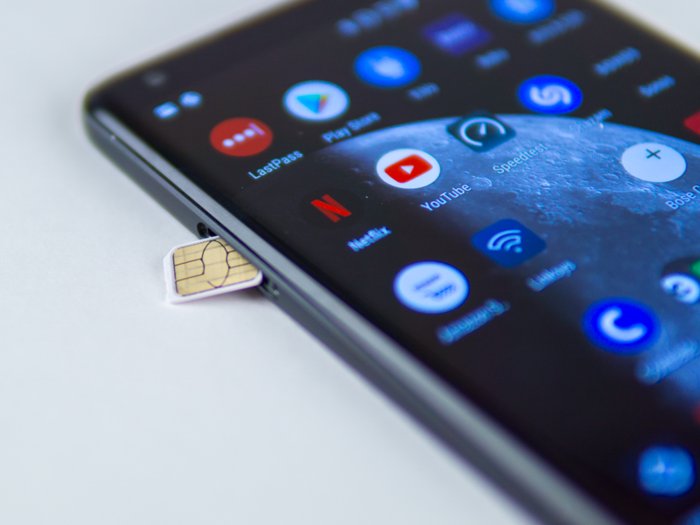
Business travel means traveling to foreign countries that work far differently from the US. Having cheap internet access can make a lot of things, from navigating a new city to sending emails, a lot less stressful.
With a little planning and forethought, you can use your smartphone abroad without worrying about eye-gouging roaming fees or racking up international "day passes." All you have to do is buy temporary SIM cards in whatever country you are visiting and you'll be enjoying cheap pay-as-you-go internet.
In order to use a foreign SIM card in your phone, you'll need to get your phone "unlocked" by your mobile carrier. Make sure to call ahead as sometimes it can take a few weeks for the request to go through.
13. Use Google Translate to read signs in foreign languages and even conduct real-time translated conversations with locals.
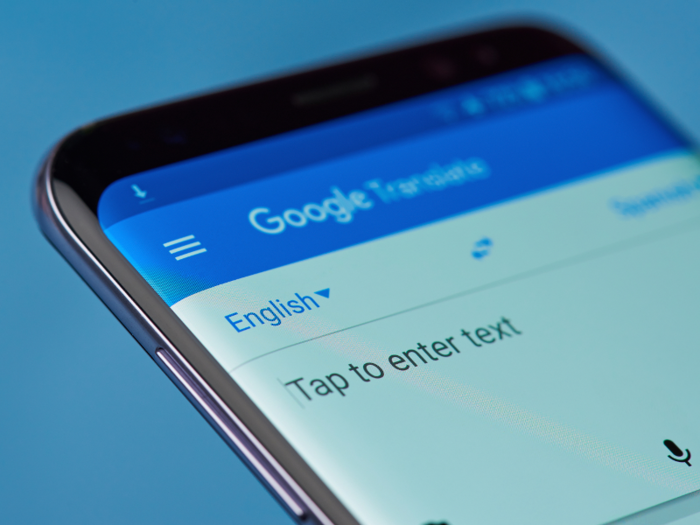
Nothing is a substitute for true fluency when traveling, but new and improving technologies are getting closer to bridging the gap. It may not be sexy, but Google Translate is the one app I can't live without.
Google Translate has several features tailor-made for travelers, like its camera function, which translates signs instantly, and "conversation mode," which allows you to speak directly into the microphone for real-time translated conversations.
Read more: I traveled the world for 6 months, and here's the single best app I couldn't live without
While visiting Japan last year, I became acutely aware of the app's amazing camera function, which can scan and translate text in real time.
As I walked through a supermarket in Tokyo's Shibuya neighborhood and encountered one unfamiliar food after another, the camera translated each kanji character into English before my eyes. It was like putting on glasses for the first time.
14. If you aren't too picky about your vacation destination, use Skyscanner's "Everywhere" search to find the absolute cheapest flights.

Sometimes, when you are planning a vacation, where to go isn't the most important part of the equation.
For me, any number of factors can determine the destination: Is it relaxing? Is it interesting? Is it exotic? Have I been there before? If a destination hits any of those factors, I could be interested — as long as airfare is the right price.
Read more: Here's how to get a ridiculously cheap flight if you don't care where you're going
When I'm booking flights, I almost always use Skyscanner's "Everywhere" search, which lets you search for flights all over the world to find the cheapest destination to fly into on the dates of your choice.
I've gotten sub-$400 round-trip flights to Europe, South America, and the Caribbean that way. It never fails.
15. If you are traveling to popular cruise ship destinations, check a "cruise ship calendar" before booking your dates.
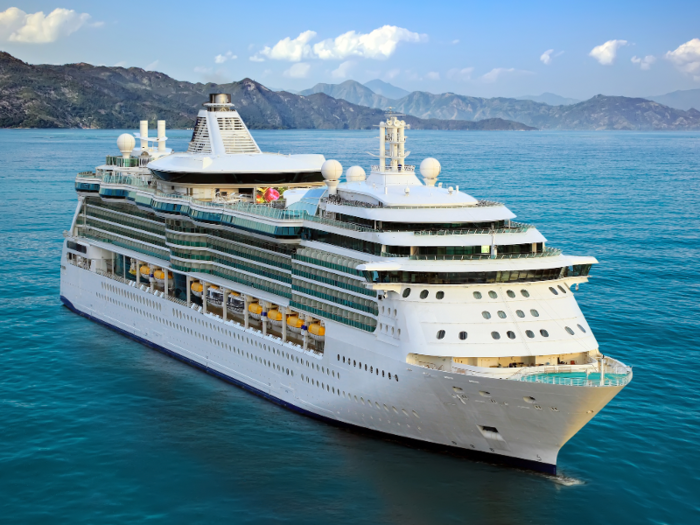
Cruise tourism is at an all-time high with an expected 27.2 million passengers this year, according to The Telegraph, up from 17.8 million in 2009.
That's good news for Carnival, Royal Caribbean, and Norwegian's bottom lines. But it's bad news for those of us who want to hopefully avoid the overtourism that plagues hot cruise ship stopping points like Mallorca, Venice, and the Galapagos Islands, among other places.
Before booking my dates to Croatia a few years ago, I consulted a cruise ship calendar like those on CruiseCal, CruiseTT, or Crew Center. Such calendars will show you how many cruise ships are in port on certain days and the passenger load of each ship.
While it's pretty much impossible to avoid every cruise ship that's coming into port for certain locations (like Dubrovnik, Croatia), you can navigate your way to less busy days.
16. Use Couchsurfing's "Hangout" feature to meet locals and find other travelers to sight-see or get dinner with.
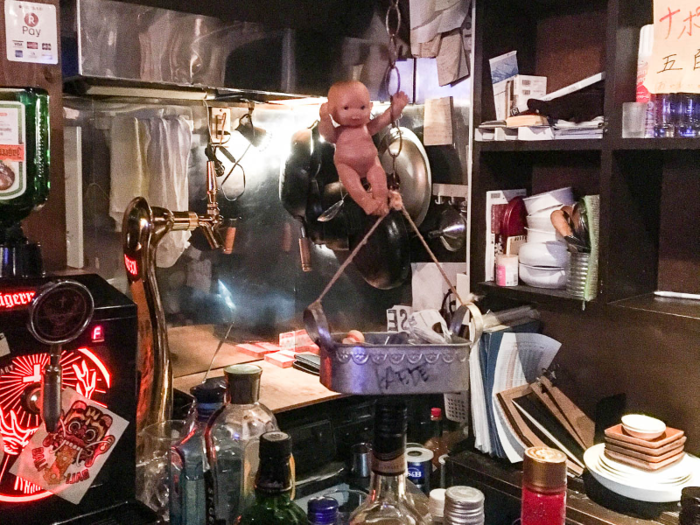
On a trip to Tokyo in 2017 to help launch Business Insider Japan, I found myself like many business travelers: alone in a foreign city. By the time the weekend came, I was getting stir-crazy.
Bored and lonely, I opened Couchsurfing, the online community that connects travelers with locals for free lodging, and found it had changed considerably. The company introduced a "Hangout" feature that made the community — the best part of Couchsurfing — accessible to anyone.
The feature, which is something like Airbnb-meets-Tinder if Tinder were for making new friends, led me to a wild night with Tokyoites that I never would have had otherwise. I saw the ambient rock band Tycho, ate at a hole-in-the-wall izakaya, and sang karaoke with a packed bar of Tokyoites deep into the morning.
17. In countries other than the US, Uber and other ride-hailing services should be your first resort, not your last.
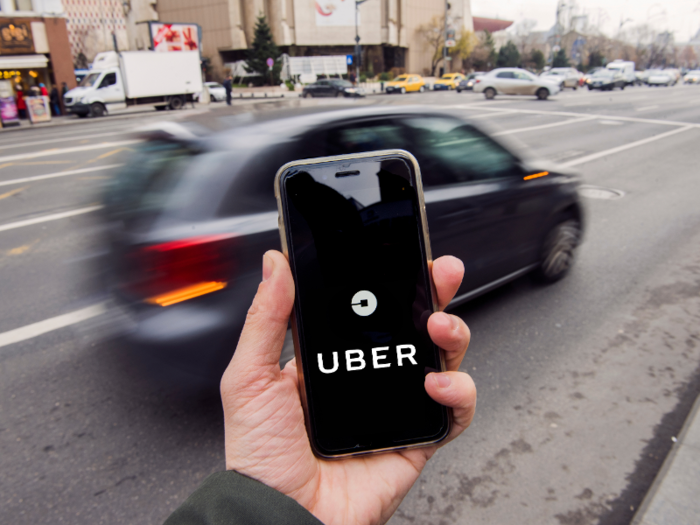
After using taxis and ride-hailing services like Uber in dozens of countries, I've become convinced that ride-hailing apps are here to stay, with or without regulation, for a simple reason: They serve a need.
While taxi services in major US cities are usually reliable and efficient, taxi services in many foreign countries are unreliable, riddled with scams, or frequently price-gouge both tourists and locals.
In countries like Mexico, Argentina, and Colombia, using ride-hailing services over taxis was a a matter of safety — there are "counterfeit" taxis driving around that may scam you — while in China, I found that I could rarely get a taxi to stop for me because drivers didn't want to navigate the language barrier.
18. Don't be afraid to skip landmarks or attractions that don't interest you, even if it's something as major as the Great Wall.
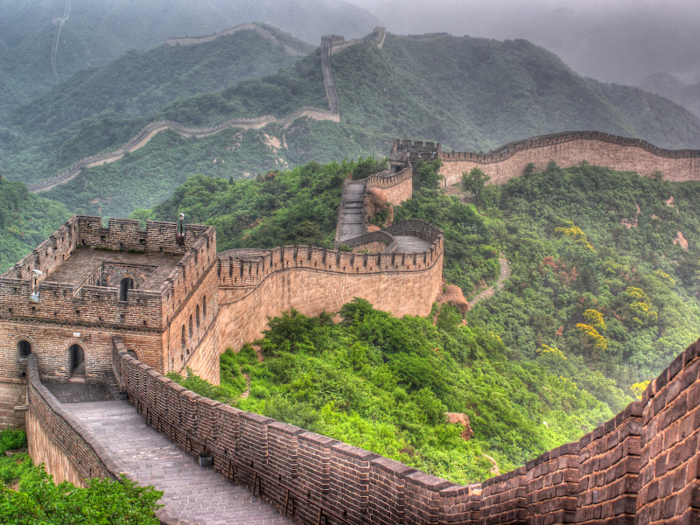
Spending all this time traveling has hammered home one truth for me: Forget about FOMO (fear of missing out). If there's an attraction, landmark, or museum that doesn't interest you, don't be afraid to skip it.
There are often too many things to see in the place you are visiting to waste your time on a site that doesn't interest you — even if it's something as monumental as the Taj Mahal or the Great Wall of China.
The persistent sense of FOMO is one of the reasons I hate bucket lists. They are a constant pressure to see and do things that other people say you have to do, rather than what you actually want to do.
In the past, that dynamic led me to spend half a day in Bogotá, Colombia at the Museo del Oro, a museum exclusively displaying pre-Columbian gold. In Europe, I visited ornate medieval church after ornate medieval church. In Stockholm, Sweden, I spent a day trudging through the stuffy rooms of the Royal Palace.
Looking back, there were a dozen other activities I would have rather spent that time on. This time around, I turned off the little voice in my head that screams "FOMO."
19. If you are going to splurge for a fancy hotel, double-check that it has a spa. Many include free access for guests.

It may sound a bit over-the-top, but the longer I travel, the more I keep an eye out for one particular amenity when booking a hotel: a spa, or, at the very least, a steam room and sauna.
While budget hotels aren't likely to have such an amenity, if you plan on booking a high-end hotel, with a little forethought and research, you can find a hotel that includes an extensive spa among its amenities, replete with sauna, heated pool, and a variety of hot and cold baths and steam rooms. And, if such a spa is unavailable, you can absolutely find a hotel with just a sauna or steam room.
Many high-end hotels like the Mandarin Oriental and The Peninsula, which have locations all over the world, offer hotel guests access to their luxurious spa facilities during guests' stay. Other hotels, like Hotel Vitale in San Francisco, will give guests access if they book a treatment or massage. Some, like St. Regis, whose hotels include facilities by Remède Spa (ranked No. 1 by Travel + Leisure) will allow hotel guests to pay for a day pass. If there are any questions, make sure to ask before booking the room.
20. If you are frequently traveling internationally, getting Priority Pass is essential.
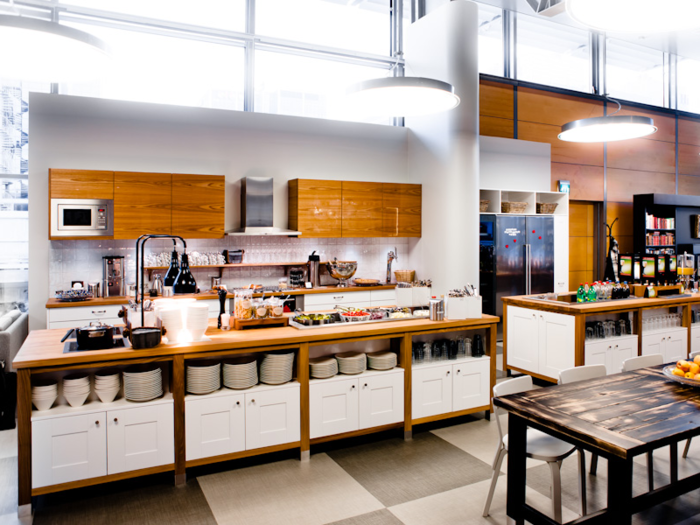
While I've heard horror stories about airport lounges in the US, I can tell you unequivocally that lounges abroad are a haven.
While each one is different, all tend to have a few essential features: comfy chairs to work or relax in, speedy Wi-Fi access, televisions, a buffet of fresh food, endless coffee and alcoholic beverages, and, most importantly, a space away from the chaos of the terminal.
The easiest way to get access, if you travel frequently internationally, is to get Priority Pass. Priority Pass is a network of 1,200 airport lounges that members can access. While Priority Pass sells memberships directly, if you have a travel-focused credit card like the Chase Sapphire Reserve, you get membership included.
Access to lounges has made traveling a much more relaxed and enjoyable experience.
21. Without fail, the best places I've visited haven't been hyped destinations like Mykonos, but unheralded ones like Tinos.
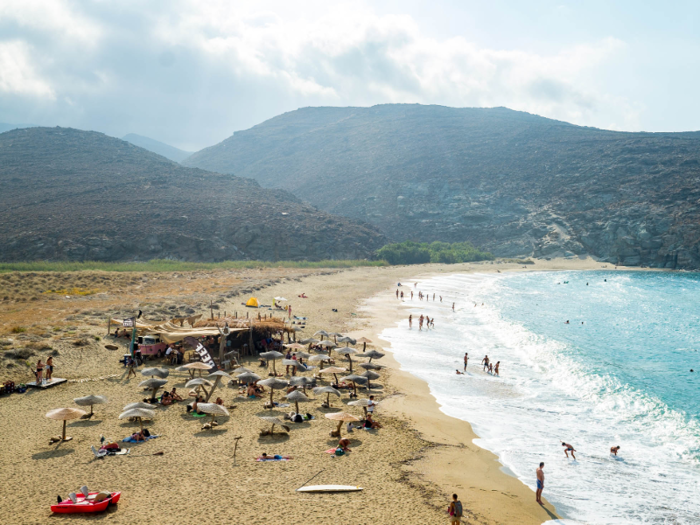
The truth about the world's most famous and hyped destinations is that they are often overcrowded and overpriced. I experienced this most prominently in Mykonos. While the island was as beautiful as advertised, it was overrun with hordes of cruise-shippers and family holiday-makers, and the hotels were absurdly priced.
After two days, I got on a ferry to Tinos, a smaller and less well-known island an hour away. I found a beautiful hotel for a great price and spent five days enjoying the island's beaches, charming town, and friendly locals. Everything was half the price of Mykonos and Santorini — or less.
Unless you care about the "scene" in a place like Mykonos (or any other ultra-hyped destination), there is always a less well-known place that will give you a similar, but better, experience for less money.
Popular Right Now
Popular Keywords
Advertisement